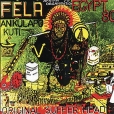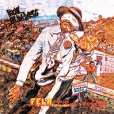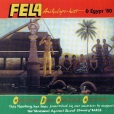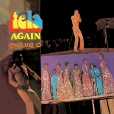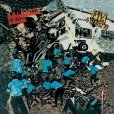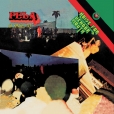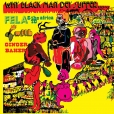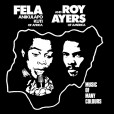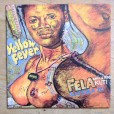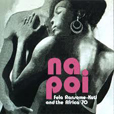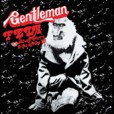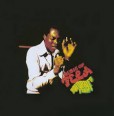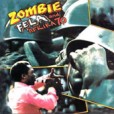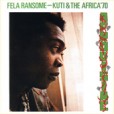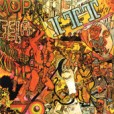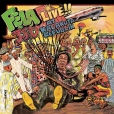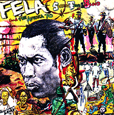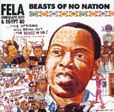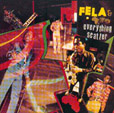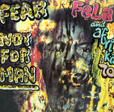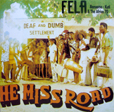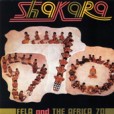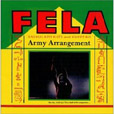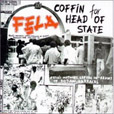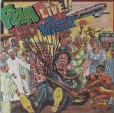Your basket is empty

The song Original Suffer Head — an angry homage to working-class Nigerians — presented in its full-length, 25 minutes, 24 seconds glory, restoring four minutes of ‘lost’ material, including a superb keyboard solo by Fela, which appeared on the original pressing, but has been omitted from subsequent reissues. The version used here starts and finishes with this characteristically visceral, futuristic keyboard work.
This was the first album Fela released under the name Egypt 80 (after disbanding Afrika 70 in 1979).
‘Fela used the cover of Ikoyi Blindness to announce his change of middle name from Ransome, which he now considered a slave name, to Anikulapo, which means ‘he who carries death in his pouch.’ The front cover shows Ransome crossed out and Anikulapo added above it.
‘The cover also announced the Africanisation of Africa 70’s name, changing it to Afrika 70. In the title track, Fela draws attention to the economic chasm separating the haves and have-nots of Nigerian society, contrasting the get-rich-at-all-costs, self-obsessed residents of the prosperous Lagos suburb Ikoyi with the more community-minded, poor inhabitants of the Mushin, Maroko, Ajegunle and Somolu neighbourhoods.
‘On the flip, Slap Me Make I Get Money) rails against the upsurge in police and military personnel assaults on people in the streets of mid-seventies Lagos. Motorists were commonly pulled out of their vehicles and given a whipping for minor traffic offences; police and soldiers were getting away with flagrant corruption in broad daylight.’
‘The penultimate album of newly recorded studio material released by Fela before his death in 1997.
‘Like its immediate predecessor, Beasts Of No Nation (also 1989), and its follow up, Underground System (1992), the album finds Fela continuing to campaign for human rights and social change despite the relentless beatings, jailings and general harassment he had received from successive military regimes since the start of the 1970s.’
50th Anniversary Reissue; ‘Igbo smoke vinyl’.
Scorcher! An all-time funk favourite of Afrika Bambaataa.
Anniversary edition, with extras.
Aka J.J.D. (Johnny Just Drop).
‘Recorded in autumn 1976, six months before the army attack on Kalakuta Republic, this is a lampoon of ‘been-to’ Nigerians, who had been to Europe or the US and returned with an inferiority complex about African culture. Ghariokwu Lemi’s front-cover portrays a suited-up been-to, dressed like a cartoon British toff, as he parachutes into a Lagos street to the bemusement of passers-by. The back cover shows a more funkily dressed been-to, wearing US-style ghetto-chic, but looking equally out of place. See how these JJD’s dress and talk, sings Fela, they are trying to be foreigners. In response, the chorus repeats the single word ‘original’, invoking Fela’s closing line on Gentleman: ‘I no be gentleman at all-o, I be Africa man, original.’‘
‘Them leave sorrow, tears and blood, Them regular trademark… My people self dey fear too much, We fear for the thing we no see… We fear to fight for freedom.’
Magnificent defiance from 1977.
‘Another underground spiritual’, as the opening puts it, about Botha and apartheid,and supporters like Thatcher, Reagan and the Dis-United Nations. (‘One veto vote is equal to 92 or more, or more’).
‘Welcome to the Kalakuta Republic — havin’ a ball.’ Buy this for the wonderful JJD, 23 minutes live and direct, with all the cogs of the Africa 70 band well-oiled and whirring together.

